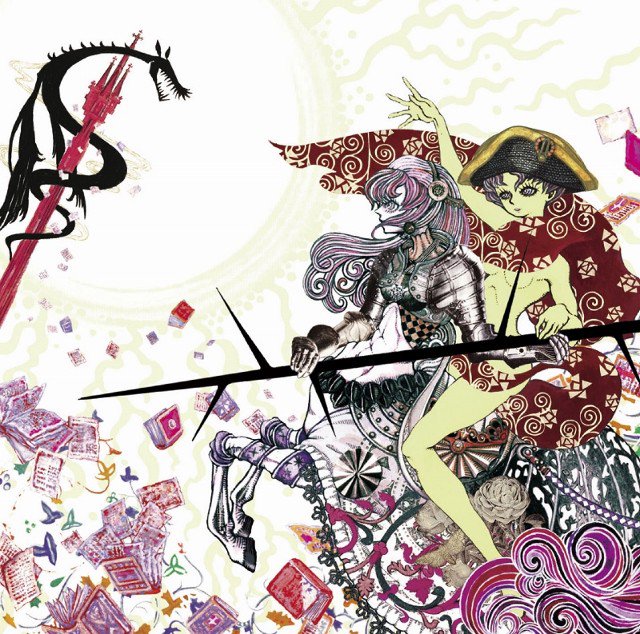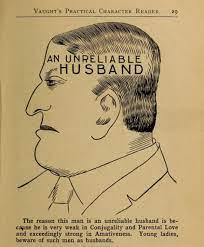I figured we could have a casual thread to talk about what we're reading. That's the main part of literature after all, in a way. I'll make a start in the comments; feel free to post something!
I just got done reading Capital Vol. 1 for the third time and desperately looking for some sort of escapism in fantasy or sci-fi.
I have some SF novels you can get on libgen if you want. Anyone who’s interested should DM me. They’re basically like a more communist, less shitty Star Trek: Enterprise.
That trailer alone is really well put together that it nearly is worth a very short movie entry. Good recommendation.
Operation Gladio: The Unholy Alliance Between the Vatican, the CIA, and the Mafia by Paul L. Williams
Is it good? I started watching the 1992 Allan Francovich documentary Gladio last night, it's crazy they broadcast this on the BBC.
Oooh read Pedagogy Of The Oppressed afterwards, it goes well with Wretched
Currently reading The Body Keeps the Score and having to stop repeatedly as I recognize symptoms and sort of have to process that and deal with it. I need to push through the difficult parts and get to the part on treatment, which takes up the back half of the book. I'm hoping I can come with a plan for reconnecting with people. I'm so tired of being lonely and afraid of other people.
Recently re-read Long Way to a Small Angry Planet as a comfort read and appreciating it more this time around, seeing all the subtle hints about this and that laid out I didn't see the first time. I really enjoyed the entire Wayfarers series.
Next up I think I'll get back on the Bas-Lag trilogy by China Mieville. I enjoyed Perdido Street Station and I'm moving on to The Scar I'm prepared for a gut-wrenching read, since that's usually how it goes with his stuff. I hope the quirky outcast character I fall in love with doesn't get horribly mangled too badly, or whatever he's going to do to me this time.
I'm reading Capital in the 21st Century (2014) by Thomas Piketty. There is some really good and useful data that he cooks up and I'm generally supportive of his project even though he is a lib.
It is very frustrating how in his effort to peer deeply into the data and mechanisms of inequality he so profoundly ignores socialist states. Like he'll use superlatives to describe how Sweden in the 70s had the lowest inequality of any country in the data anywhere like mf I'm fucking begging you to look at the USSR, or Cuba, or China. Or he'll use France, Germany, the UK and Sweden to represent wealth inequality in Europe in the 20th century like mf there was like a whole half of Europe that was on a completely different program for like half of that time period.
But yeah, hot take socialist finds Piketty annoying.
I'm also reading The Humans (2013) by Matt Haig, which is cute and light.
Oh and I'm also reading Climate Change as Class War (2022) by Matthew Huber, and he's kind of a knob and his writing sucks.
I've read Capital in the 21st Century and I agree completely. Piketty has a very liberal worldview, and that can be annoying at times, but the book is at least written in good faith. From what I hear Piketty has also been moving left since then pretty steadily, just at a snail's pace. I think he is pretty focused on wealth redistribution these days, which is good, but stuck thinking only in terms of what liberal western democracies could do without really changing their system. Can't say for sure since I haven't read anything he has written since then, but Capital is if nothing else interesting as an enormous pile of interesting data.
The good thing is that Piketty's world view started to shift. He isn't quite there yet, but his newer works and newer interviews do show him having moved quite a bit on the ideological map. He also doesn't believe anymore that what governments need is data to change their ways. He is more aware of the class conflict that is going on.
Like I said: a snail's pace. I will give him credit for not actually stopping yet, but he is walking next to the train tracks. Could have gotten there much faster, but so long as he keeps walking in the same direction I won't complain too much. Plenty of designated stops along the way though. I hope he keeps walking past them.
If you are into stuff like that I would like to recommend you the "new" Hickel paper posted here a couple of days ago:
https://www.tandfonline.com/doi/full/10.1080/13563467.2023.2217087
Capitalist reforms and extreme poverty in China: unprecedented progress or income deflation? Dylan Sullivan, Michail Moatsos & Jason Hickel
ABSTRACT
It is widely believed that China's socialist economy had relatively high rates of extreme poverty while the capitalist reforms of the 1980s and 1990s delivered rapid progress.
This narrative relies on World Bank estimates of the share of people living on less than $1.90 a day (2011 PPP), which show a sharp decline from 88 per cent in 1981 to zero by 2018.
However, the World Bank’s poverty line has been critiqued for ignoring variations in the actual cost of meeting basic needs.
In this paper we review data published by the OECD on the share of people unable to afford a subsistence basket.
These estimates indicate that from 1981 to 1990, when most of China’s socialist provisioning systems were still in place, the country’s extreme poverty rate was on average only 5.6 per cent, substantially lower than in capitalist economies of comparable size and income at the time: 51 per cent in India, 36.5 per cent in Indonesia, and 29.5 per cent in Brazil.
China's comparatively strong performance is corroborated by data on other social indicators.
Moreover, extreme poverty in China increased during the capitalist reforms of the 1990s, reaching a peak of 68 per cent, as privatisation inflated the prices of essential goods and thus deflated the incomes of the working classes.
These results indicate that socialist provisioning policies can be effective at preventing extreme poverty, while market reforms may threaten people's ability to meet basic needs.
It is a quick 20-ish page read and some of the critiques you level are in the paper and its sources, too.
Somewhere on here I lamented my inability to get into Terry Pratchett. Mostly the problem is that the way he writes gives little indication of chronology, so it feels like everything is happening at once. Well, in the interim, I came across the BBC radio adaptations, which hardly have that problem at all. So I started back into Guards! Guards! and it was a neat little investigation of the trope of the city guard in fantasy fiction. Like, what actually is the point of a standing constabulary when theives and assassins can establish guilds?
Recently started into Men at Arms and it feels like it has far more to say in the same space. I think it may suffer in that regard.
I've been rereading books I liked in my early adulthood years to see how they hold up. Up currently is Hocus Pocus by Kurt Vonnegut. I don't remember reading it 15+ years ago, but it's standard vonnegut and I'm enjoying it. Probably going to reread Catch 22 afterwards.
Finished "There There" recently but found it difficult to follow with so many character names spread across multiple timelines all leading up to one scene
I been reading Caliban and The Witch lately, it's been pretty interesting, even if I still haven't gotten far in it yet. I kind of keep jumping books. Since I'm also reading The Jakarta Method to and Trans Liberation: Beyond Pink or Blue I also plan on reading Blood in My Eye or some of the Dune books or Inanna, Lady of Largest Heart, but I'm really trying my best not to get ahead of myself or I'll never finish any of these.
Its a good mix. Caliban and the witch is well sourced and depending on what you read before can really shift your internal framework quite a bit. I haven't finished it either, but can see why people like it. Really hard to recommend to non-political people though cause of the academic materialist language.
The Wretched of the Earth, and it's extremely interesting and a little bit horrifying. It's been more than 60 years since it was written, and the process of empire turning inward has been continuing the whole time. The psychology and mechanics of colonialism are more relevant to to us core-dwellers than ever before
Before that, I think the last one was Frankenstein. Hard to remember, I don't get much time that's good for reading so I don't get through books quickly
Started to read The Midnight Library by Matt Haig. So far the prose is boring and the main concept seems hamfisted, so I'm considering dropping it.
Finishing up a fan translation of Sacred and Terrible Air by Robert Kurvitz of Disco Elysium fame. It's a bit janky at points but I'm enjoying it. Hits a lot of similar notes as DE, so if you're a fan of the game I'd recommend giving SATA a read. Read the Ibex translation if you do.
Also recently finished Lincoln in the Bardo which was amazing. Really powerful stuff. Gonna check out more of Saunders' books now.
Gonna check out more of Saunders' books now.
I'd suggest the short story collection In Persuasion Nation, I think it's his best.
Yeah Tenth of December is good, and has the story The Semplica Girls Diaries which is one of his best. He's a lib, and so tends to do his best writing during Republican administrations because it gets him fired up, which is why I recommend In Persuasion Nation.
Barth's Lost in the Funhouse. Experimental autobiography/metafiction. Some very funny moments (petition, menelaid, titular story), but many moments where Barth's language/structure/references are a bit beyond my grasp.
I just finished reading Summer Fun by Jeanne Thornton. It's about a young trans woman obsessed with a 60s pop band and most of the book is her recounting the story of its lead singer.
So there's two stories being told at once (spoilers!): One is the life history of a pop singer, from an emotionally abusive childhood to commercial success to an attempted coming out and an experimental magic album, followed by repression and obscurity. Meanwhile, in 2009, the narrator is working a dead-end job in the middle of nowhere where she has approximately one friend, when she suddenly meets the granddaughter of the singer's wife. She wants to take her away on a road trip to uncover all sorts of family secrets; the narrator refuses and stays put where she is.
I quite liked it. I didn't really care for the 60s setting, which mostly manifested as an oppressive air of misogyny, homophobia and transphobia, but it did serve to underscore the dour tone of the book. The portrayal of social intricacies is very well done, I think. One example: The narrator is poor and working a bad job, the woman she encounters is well-off enough to travel the country without a care in the world, and when the narrator doesn't want to leave the state on a whim, she calls her "bougie". That's relatable. But what created the most distance between the book and me was the lack of deliberation. Everyone's actions seem like they come immediately from their own personal psychic damage, and never do two people just sit down and talk about it. I feel like that's common in contemporary novels and it's certainly realistic, but I don't enjoy it. Then again, it plays into the narrator's magic beliefs in that people seem to act according to something like destiny or fate, maybe, so it's not unwarranted.
All in all, the book was nice enough and certainly well-written, but I can't agree that it's a "masterpiece", like the Torrey Peters blurb on the cover says. Maybe it's just more meaningful to Americans or fans of the "Beach Boys", I guess.
I just read two novels by Alasdair Gray and I think comrades will dig his work. Poor Things was magnificent - although the reversals and unreliable narration make me wary of the upcoming film version.
Lanark didn't quite hang together, but it had some moments of pure sublimity and was frequently very funny. As someone with chronic pain, I found this paragraph especially perfect. Young Duncan Thaw is suffering from an immense asthma attack, and has recently been visited by a Calvinist preacher:
Excerpt
“At the height of the panic, while glaring at the irrelevant moon, his one thought had been a certainty that Hell was worse than this. He had not been religiously educated and though he had a tentative faith in God (saying at the end of prayers “If you exist” instead of “Amen”) he had none in Hell. Now he saw that Hell was the one truth and pain the one fact which nullified all others. Sufficient health was like thin ice on an infinite sea of pain. Love, work, art, science and law were dangerous games played on the ice; all homes and cities were built on it. The ice was frail. A tiny shrinkage of the bronchial tubes could put him under it and a single split atom could sink a city. All religions existed to justify Hell and all clergymen were ministers of it. How could they walk about with such bland social faces pretending to belong to the surface of life? Their skulls should be furnaces with the fire of Hell burning in them and the skin of their faces dried and thin like scorched leaves. The face of Dr. McPhedron came to him as abruptly as when it was thrust over the edge of the rock. He turned for help to a bookcase beside the bed. It held books got secondhand for sixpence or a shilling, mostly legends and fantasies with some adult fiction and nonfiction. But now the fantasies were imbecile frivolity, and poetry was whistling in the dark, and novels showed life fighting its own agony, and biographies were accounts of struggles toward violent or senile ends, and history was an infinitely diseased worm without head or tail, beginning or end.”
Not sure if this counts as "literature" but I've just been reading a lot of papers from finance analysts to better understand wtf is going on in the world economics wise
slowly working through Our Enemies in Blue. it's very good so far. hate cops so much it's unreal








